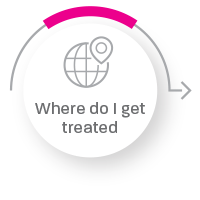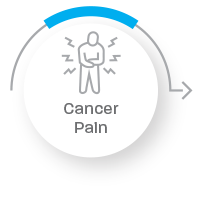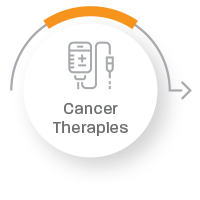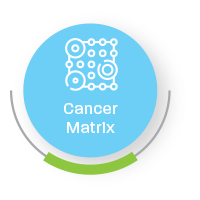Cancer Matrix
One powerful way to move forward is through mentorship—where cancer survivors support newly diagnosed patients. Mentors offer hope, guidance, and a listening ear from someone who’s been there. Cancer GPS helps survivors and mentors thrive together by providing tools, resources, and encouragement for every step of the journey.
Life after cancer treatment is called survivorship. It’s a time to focus on healing, follow-up care, and adjusting to your “new normal.” Survivorship can bring physical and emotional challenges, but it also offers opportunities for growth, reflection, and connection.
Spiritual Journey
A cancer diagnosis can be a challenging and difficult experience that can impact a patient’s physical, emotional, and spiritual well-being. Many cancer patients find solace and support through their spiritual beliefs and practices. Spirituality can take many forms, including religious practices, meditation, yoga, or other forms of mindfulness. Engaging in spiritual practices can help cancer patients cope with the emotional and psychological impact of their diagnosis and treatment. It can also provide a sense of community and connection to others who share similar beliefs and experiences. Cancer patients may seek guidance from their spiritual leaders, chaplains, or other counselors who can provide emotional and spiritual support during their cancer journey. They may also find comfort in support groups that focus on spirituality or religion. It’s important for cancer patients to find a form of spirituality that resonates with them and helps them navigate the challenges of their diagnosis and treatment. By nurturing their spiritual health, cancer patients can find a sense of peace, hope, and purpose that can help them on their road to recovery.
Caregiving

Caregivers are the backbone of cancer care. They help with appointments, medications, meals, transportation, and emotional support. Whether you’re a spouse, parent, child, or friend, caregiving is a big responsibility—and it can be physically and emotionally exhausting.
Burnout is common, but help is available. Cancer GPS offers resources to support caregivers in caring for their loved ones—and themselves. You don’t have to do it all alone.
Forrest White (pictured)
Forrest’s mother is a four-time cancer survivor; this experience has allowed him to focus on helping those with cancer and their families get through challenging times by being a role model for caregiving
Palliative Care
Cancer patients who are facing advanced or terminal illness may benefit from palliative care. Palliative care focuses on improving the patient’s quality of life by addressing physical, emotional, and spiritual needs. This can include pain management, symptom control, and emotional support for the patient and their family. Palliative care is often provided by a team of healthcare professionals, including doctors, nurses, social workers, and chaplains. The goal of palliative care is not to cure the cancer, but to help the patient live as comfortably and fully as possible. Patients can receive palliative care at any stage of their illness, not just in the final stages. It’s important for patients to talk with their doctor and care team about their goals for care and what kind of support they need. Palliative care can be provided in a hospital, hospice, or at home. Patients can also receive palliative care alongside their other cancer treatments, such as chemotherapy or radiation therapy. By focusing on the patient’s overall well-being, palliative care can help cancer patients and their families find comfort and support during a difficult time.
Hospice
Hospice care is a specialized type of palliative care that is provided to individuals who are in the final stages of their life. It is designed to provide comfort and support to patients with life-limiting illnesses, including cancer. Hospice care can be provided in a variety of settings, including hospitals, nursing homes, and patients’ homes. The primary goal of hospice care is to help patients manage their symptoms and maintain their quality of life as they approach the end of their life. Hospice care teams typically include doctors, nurses, social workers, spiritual care providers, and other healthcare professionals who work together to provide comprehensive care. They also offer emotional and spiritual support to both the patient and their family members. Hospice care is covered by Medicare, Medicaid, and most private insurance plans. To qualify for hospice care, patients must have a terminal illness with a life expectancy of six months or less, as determined by a healthcare provider. Patients who receive hospice care may still receive medical treatment for their cancer, but the focus is on providing comfort rather than curing the disease. Hospice care can be a valuable resource for patients and their families as they navigate the end-of-life process.

Help Support Cancer GPS
Cancer GPS is a 501(c)(3) organization, and your donations allow us to keep providing services to cancer patients and their families. Thank you for your continued support.








